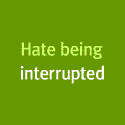|
|
|
|
Jewish World Review July 27, 1999/ 14 Av, 5759
Elliot B. Gertel
This show, described by TV Guide as "NBC's most successful dramatic
debut since ER" tells of an L.A. plastic surgeon,
Syd (Melina Kanakaredes), who returns to her home town of Providence, R.I.,
after her mother's death to find meaning in tending to her father and
single-parent sister, and in working at a clinic. Syd finds guidance, by
the way, in the spirit or ghost of her mother, an oracle for every family
problem from romance to baby care.
Barely in time to save the baby from an unnecessary surgery, Syd confronts
the parents with her suspicions about the Jewish disease. The mother
confesses that she was "raised Jewish" but converted to Catholicism after
meeting her now husband, Doug. The problem is that the disease is inherited
from both parents. Syd (who is not Jewish) asks Doug, whose last name is
Kosowski, whether he could be descended from Ashkenazi Jews. Doug says that
while he never knew his father's family, one could not "get more Catholic"
than his mother's side, which included a grandmother who never missed a day
of church and who was raised by nuns in Poland.
After Syd probes and
discovers that the grandmother was raised by nuns in the 30s and 40s, she
points out: "That's the time when a lot of Jewish children were raised
outside the family for their own protection."
I found it curious that writer Scovell does not use the term, "Holocaust,"
here, just a code word, "for their own protection," which almost implies
that the children chose to be raised by nuns out of prudence and for the
best of reasons! Also, Syd is made to respond here that she does not doubt
the beliefs of the couple's ancestors, "just their genetic makeup."
Actually, the writer means for Syd to say that the "genetic makeup" is not
in doubt, for the doctor's next line is, "You can't escape your DNA."
What can we make of this scenario and of this sort of dialogue? Certainly,
TV writers, whether Jewish by birth and by faith, or Jews by Choice, or
even Jews who have converted to other religions (more commonly, Buddhism)
will express a point of view about Jews, conversion, biology and DNA in
television dramas. This is the first such occasion of which I am aware.
But
what message comes across? One thinks of the old jibe, "You can change your
noses but not your Moses." Does this hour declare, "You can change how you
pray but not your DNA?"
While the New Age line is still to respect and even to experiment with any
and all religions so long as no one believes that any one faith holds
absolute truth or demands exclusive loyalty, one hears more and more at
"conferences" on "mysticism and science" either that interfaith marriage
should be encouraged in order to blend "racial resonances" or discouraged
in order to preserve them.
The dangers of reducing religious loyalty or the changing of religion to
biological issues need not be spelled out here. What I found disturbing
about this episode of Providence is that the writer saw no need to deal
with the biblical concept of Covenant which alone puts the biological
issues into perspective.
We were told of the wisdom of the Book of Job, and assured of the young
mother's sincere faith in Catholicism, but given no insight into why Jews
believe that loyalty to their people's Covenant with God is binding and
eternal. If the writer had not brought the discussion to faith or doubt or
belief resting with DNA, I might have accepted the ironics of the story
line without delving into some of the vocabulary and catchwords used. At
best, however, the episode is ambiguous and, therefore, lends itself to
exploitation by syncretistic platitudes and trends of "thought" that are
unfriendly both to Judaism and Catholicism.
Also, the obsession with what the Torah disapprovingly describes as
"familiar spirits" is another troubling motif of this episode, as of the
series as a whole, a motif that began, as I remember, with another NBC
series, Sisters. If anything can groom a mass audience for New Age
proselytizing, that can.
One further message of this particular episode of Providence should be
mentioned. The science is wrong.
I am grateful to the alert members of the Pomegranate Guild of Judaic
Needlework, Chicago Chapter, who sent me a tape of the episode and who
taught me about FD, and who are familiar with stories about the disease
revealing hidden Jewish backgrounds in ways that hauntingly parallel the
episode of Providence. Their hope is that the writers will not make light
of the seriousness of the disease. I share that hope, and add my own that
the series will no longer mix religion with
06/14/99: May 'The Nanny,' R.I.P. --- not!
 Popular Providence sends troubling messages about religion and science
Popular Providence sends troubling messages about religion and science
 In an episode written by Nell Scovell, a baby is brought to the clinic
suffering from an inexplicable syndrome that includes an inability to suck
in nourishment. Despite the father's obvious hostility to women doctors,
compounded by Syd's troubles performing a certain procedure, she persists
in trying to pinpoint the disease. She meets the baby's mother, who
appreciates her concern, at the hospital chapel. The mother suggests that
as a ruse to see the baby again, despite the father's objections, the
doctor take a Bible that belonged to the baby's great-grandmother and say
that she found it in the chapel and is returning it to the family. It is a
good ruse which itself is almost biblical in flavor. Syd notices a Star of
David on the Bible, and is thus alerted to the possibility of a Jewish
genetic disease.
In an episode written by Nell Scovell, a baby is brought to the clinic
suffering from an inexplicable syndrome that includes an inability to suck
in nourishment. Despite the father's obvious hostility to women doctors,
compounded by Syd's troubles performing a certain procedure, she persists
in trying to pinpoint the disease. She meets the baby's mother, who
appreciates her concern, at the hospital chapel. The mother suggests that
as a ruse to see the baby again, despite the father's objections, the
doctor take a Bible that belonged to the baby's great-grandmother and say
that she found it in the chapel and is returning it to the family. It is a
good ruse which itself is almost biblical in flavor. Syd notices a Star of
David on the Bible, and is thus alerted to the possibility of a Jewish
genetic disease.
 And what does the reference to DNA mean? In growing schools of New Age
attempts to blend religion and science, there is a new trend to speak of
"blood memory and DNA carrying their own racial resonances to the sacred."
And what does the reference to DNA mean? In growing schools of New Age
attempts to blend religion and science, there is a new trend to speak of
"blood memory and DNA carrying their own racial resonances to the sacred."
 At one point, Dr. Syd tells the young couple that the baby's disease is
called Familial Dysautonomia (or Ryley-Day Syndrome), and that once
detected, the disease is "fairly easily treated." Yet the truth is that
this disease, which robs the eyes of tears, the person of the essential
protective alarms of pain, spills liquids into the lungs, resulting in
infections and pneumonias, which impairs the inner regulation of body
temperature, bends the spinal chord, and destroys the taste buds, severely
reduces the life-span of its victims.
At one point, Dr. Syd tells the young couple that the baby's disease is
called Familial Dysautonomia (or Ryley-Day Syndrome), and that once
detected, the disease is "fairly easily treated." Yet the truth is that
this disease, which robs the eyes of tears, the person of the essential
protective alarms of pain, spills liquids into the lungs, resulting in
infections and pneumonias, which impairs the inner regulation of body
temperature, bends the spinal chord, and destroys the taste buds, severely
reduces the life-span of its victims.
Contributing writer Elliot B. Gertel is JWR's resident media
maven.

06/07/99: Suddenly Susan's Death of a Rabbi
05/13/99: During the "sweeps," religion suffers